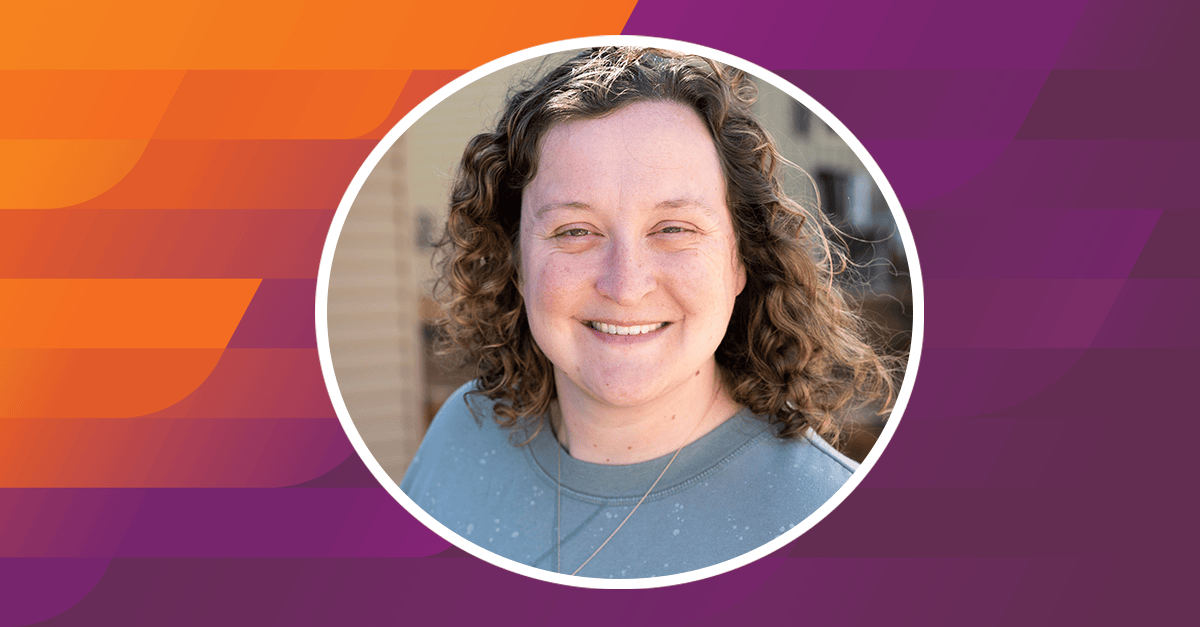When Sara Cothran went on a school field trip in her junior year of high school to an ambulance base, she had no idea that the experience would change her life forever.
“That really got me interested in the idea of becoming an emergency medical technician, so I became certified the summer before my senior year of high school,” says Sara, who graduated in 2009. With that background, she decided when she went to college in the fall to pursue nursing.
Finding Her Way in College
As a first-generation college student, Sara did not know what to expect when she started her college journey at a small school in South Carolina. “The classes were rigorous, and I was away from home for the first time,” she says. After a year, it was clear to her that a different environment would suit her better. She transferred to Greenville Technical College and earned the Emergency Medical Technology Associate in Applied Science degree.
First Career Stop: Paramedic and EMT
For the five years that followed, Sara worked as an EMT and a paramedic for Greenville County EMS, which she described as “one of the more progressive EMS systems in the state” for its pilot program on starting antibiotic treatment for sepsis in the field and forward-thinking protocols. “It was an amazing experience,” Sara says. After a while, she decided to go back to school for a nursing degree to expand her options. She returned to Greenville Technical College and graduated with an Associate Degree of Nursing (ADN) in 2015.
Medical-Surgical to Start
Sara’s first job as a new nurse was in the critical care unit and medical-surgical floor of a small, local hospital. The hospital policy was that ADN-prepared nurses needed to enroll in a Bachelor of Science Nursing (BSN) program within a few years of being hired, something she planned to do anyway to expand her options. “I researched programs and found American Sentinel College of Nursing and Health Sciences at Post University,” she says. “It was affordable and structured in a way that I could do it on my own time while still continuing to work.” Sara started the BSN program in 2016.
Expanding her Clinical Experience
Also in 2016, Sara moved to Self Regional Healthcare, a short-term acute care hospital in Greenwood, South Carolina. She became a lead RN in outpatient cardiology, a role that suited her well. “I loved everything about cardiology,” says Sara. “I liked the pace. I appreciated that we were saving lives. And I learned so much there.”
The changes induced by the COVID pandemic had Sara thinking about her future. “You could just see nursing changing so much,” she says. “We were seeing so many patients who had put off procedures and care for a year and a half, which caused this huge demand for outpatient services.” Her many nurse practitioner colleagues encouraged Sara to consider becoming one too. By 2021, she was ready—and contacted her alma mater, Post University, about its Master of Science in Nursing (MSN) with an adult gerontology primary care nurse practitioner specialization.
Back to American Sentinel for More
Sara enrolled in the MSN – Adult Gerontology Primary Care Nurse Practitioner Specialization in March 2021 and switched to a job with a schedule that would allow her to perform clinicals. Sara is now an RN for a hospital within Prisma Health, the largest healthcare system in South Carolina.
Plans to Work with Older Patients
Sara’s experience working with older patients has opened her eyes to an area she’s passionate about. “I love the older population,” she says. “I would continue working with this population, and I’d also love to work in rural health. I know that’s an area of need here in South Carolina and in many places.”
When Sara completes the MSN program in November 2023, she hopes to work in primary care. The experience thus far has been both beneficial and inspiring. “I’m very glad I did this,” she says. “I know it will open up opportunities for me. And I definitely recommend Post University. The advisors take care of you and the MSN is a great program. It challenges you to think about all the different areas of nursing. I’m applying what I’m learning, and I know I’ll continue to.”
